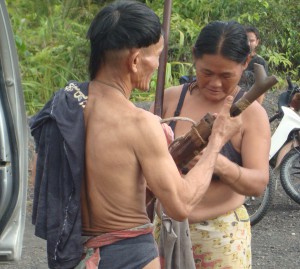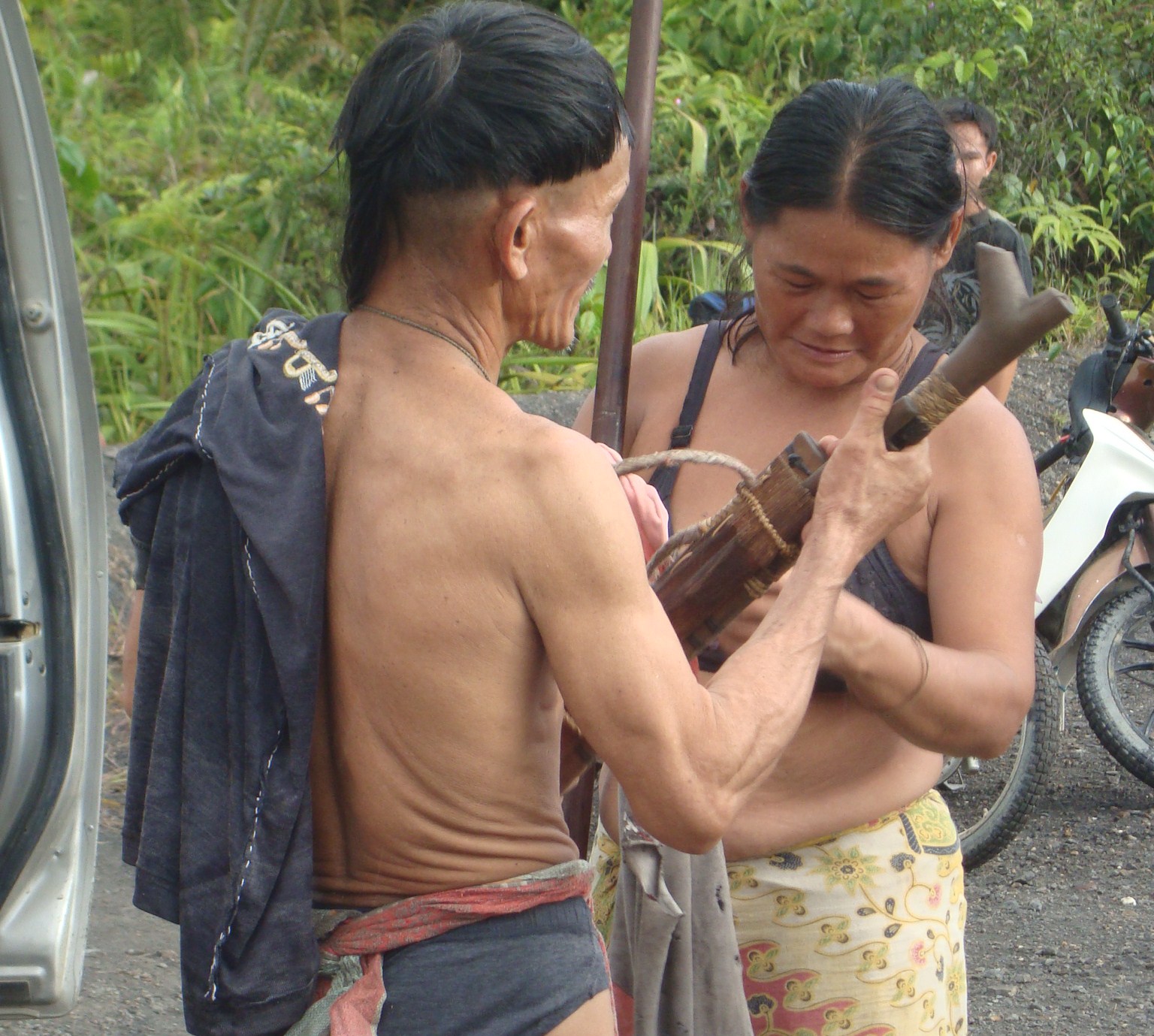Excerpts From Mafrel’s Reports Into The Problems Of Gaining Birth Certificates And Voter Registration For Citizens In Rural Regions Of Sarawak – November 2009

Problems to obtain Birth Certificate
- Many problems caused the communities here to go without birth certificate. A major complaint is that those kids born in clinics are given birth certificates immediately, while those born at home in their `kampong’/village are required to provide more than a dozen documents eg IC photocopy and photo of the `bidan’ or delivery person, marriage certificate of parents etc. Many residents with little schoolings find it a challenge to understand and locate all the requirements-thus have to go many times to the JPN office to complete the application. The requirements for home birth are lots more than clinic birth-seemingly reflecting some prejudice against home births.
- Then they have to deal with the most challenging problem for these far-flung communities: costly and time consuming transports. To go from eg Long San to Long Lama -where the nearest JPN office is located, cost RM100.00/head for 2 ways, and may take a whole day on 4-wheel drives. It is difficult for most of the residents here and thus it can be understood that many locals go without a birth cert, which affect their life and their kids later when they have dealing with the government. Parents’ birth certificates are often required for kids to apply for their own birth certificate-though in the past(up to 80’s) this may not be required.
- To make things worse if the parents don’t apply for a birth cert 14 days after a birth they will be penalised with a RM5.00 fine. If they are late over 42 days the fine go up to Rm10.00. Wonder if this `fine’ proposers ever consider the problems of the cash strapped rural folks here? JPN officers in the rank of Grade 22-27 can waive these fees -but in Long Lama they don’t have officers of such ranks!
- It also didn’t help that the support documents required for application of birth certs are numerous and confusing eg a requirement of IC copy of the applicants’ kids may unsuspectingly also include that of his/her spouse! Alternate documents eg marriage certificates from government and from village chief, are listed together as though both are required.
Problems to obtain IC
JPN officers have been said to be less than helpful when it come to Identity Card applications. Due to the requirements of numerous support documents, there are rooms for corruptions by the officers involved. Many villagers complained about a JPN officer who had been said to demand huge payments for applying for ICs and birth certificates.
- From the information we gather from the residents JPN officers don’t clarify to the usually illiterate applicants the reasons for delays or rejection of applications, causing the applicants to make numerous repeat runs to the JPN office over many years and yet could not settle the applications. The residents have also complained of being asked to reapply-causing them to make new payments for the applications.
- Case study 1: Kevin Nuing-When the JPN officer does scribble some remarks on the receipt of the application forms some are almost hilarious eg one required a reapplication to be made `on-line’ !
- Wonder if the officer bothered to find out if there is internet access in most of these interior areas. In fact there is not even mobile phone network or phones network using land lines in most of Baram outside Miri. Many places don’t even have main grid electricity and piped water supply, to start with!
- Case study 2: 2 brothers from the same family in Long Laput House No. 91: Ronnie Wan, age 21, don’t have birth certificate and IC; Nicholas Lengang Wan, age 19, has birth certificate. Nicholas was told by JPN officer that he cannot have his IC till his brother obtain his birth certificate –then both brothers will get their IC together. Wonder where are the regulations which spell out such a policy!
Problems of Mobile JPN units
Perhaps to deal with complaints of access the JPN from Kuching and Miri do occasionally send mobile registration units to the long houses. However from someone who witnessed it there are numerous complaints: there is not much notice to the deployment of these mobile units. In truth we found a schedule of it on a periodical from the JPN dated 2007. Since there are only a few copies of the magazine in the Long Lama JPN office where else can people get to know the deployment of these otherwise useful service? In fact even the Long Lama JPN office said they had never been told in advance of the deployment of these mobile unit-except after the events. In any case they are not involved. Then the mobile units only park in 1 place and require long houses all around to come to it. It is troublesome for many residents here to come within the 2 days the mobile unit was parked there. In a witnessed case in Long San, which took place recently this year, the mobile unit closed right on time-even with long queue waiting for their service. No one knows when they will come again.
Problems of voter registration
With so many people not eligible to register as voters due to their lack of IC it does not help that for those who are, voters registration can be difficult due to the distance to travel to the nearest town in Long Lama. In recent years the SPR/Election Commission allowed political parties and some NGOs to be `Penolong Pendaftar'(Registration assistants) to help register the voters in the long houses. However transport problems are still slowing down the effort by these groups. The requirement to attach a photo copy of the applicants’ IC means that the person who do registration need at least a camera to enable him/her to carry out the duty for applicants staying in remote areas.
Then for those who already registered they face the problem of going to vote. A local told us that of the 30 registered from Long Keluan only 10 did go to vote in Long San, in the last election. Voting can be a costly an time consuming affairs for these voters!

